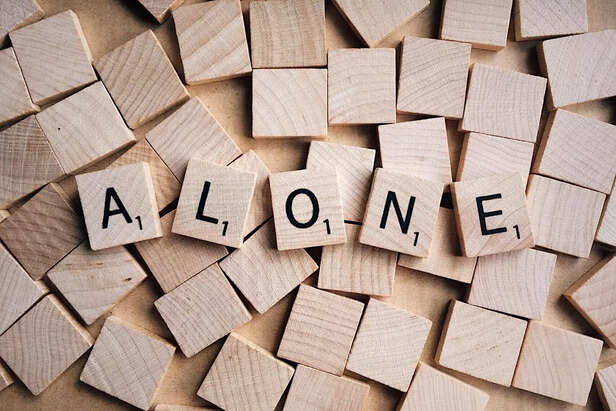Why Our Gen Z Trusts Strangers Online More Than Family
Kaushal | Sep 27, 2025, 13:10 IST
Gen Z
( Image credit : Pixabay )
Many find it easier to confide in strangers online than family. Digital platforms offer a judgment-free space for sharing personal struggles. This trend highlights a desire for understanding and acceptance. Family dynamics often involve pressure and a lack of empathy. Rebuilding trust within families requires effort and open communication. The goal is to create safe home environments.
Have you ever shared your deepest fear with someone on the internet before you told your mom, dad, or even your closest friend? You are not alone. For many of us, strangers online feel safer than family when it comes to opening up. It sounds odd at first, but when you think about it, it makes sense. In a world where family may judge, lecture, or fail to understand, online spaces offer a freedom that feels rare in real life.

Scroll through Reddit, Instagram close-friends stories, or anonymous confession pages, and you’ll notice one thing: people are pouring their hearts out. They talk about mental health, relationships, sexuality, failures, and insecurities often to complete strangers. Strangers online don’t carry expectations. They can’t use your secrets against you at family dinners. And most importantly, they listen without saying, “What will people say?” This digital intimacy has become a lifeline for a generation that feels misunderstood at home.

It’s not that family doesn’t love us. But love often comes mixed with judgment, pressure, and fear. You share your dream of becoming a writer, and they ask, “But how will you earn?” You open up about mental health, and they say, “It’s just in your head.” You confess a mistake, and instead of empathy, you get a lecture. It’s exhausting. Over time, many choose silence with family and honesty with strangers.

But here’s the paradox: trusting strangers online is both comforting and heartbreaking. It shows how desperately we crave to be heard. The fact that people prefer strangers over family is not proof of stronger bonds online it’s proof of weaker bonds offline. Our generation grew up in homes where mental health wasn’t discussed, where vulnerability felt dangerous, and where silence became survival. Online trust is a rebellion against that silence.

It doesn’t have to stay this way. While strangers can offer temporary relief, families can still become safe spaces with effort from both sides.

If we keep trusting strangers more than family, the emotional distance at home will only grow. Generations will pass down the same silence. But if even one person dares to start an honest conversation at home, things can shift. Our generation’s trust in strangers isn’t weakness it’s a symptom of how badly we crave understanding. The real goal is to build families that feel as safe as our online communities.
At the end of the day, strangers may hear your secrets, but family carries your story. One cannot fully replace the other. Trusting strangers online shows us what we need: acceptance, empathy, and a listening ear. The challenge is bringing those qualities into our homes. Until then, yes sometimes it’s easier to pour your heart out to someone you’ve never met.
The Rise of Digital Confessions

Digital
( Image credit : Unsplash )
Scroll through Reddit, Instagram close-friends stories, or anonymous confession pages, and you’ll notice one thing: people are pouring their hearts out. They talk about mental health, relationships, sexuality, failures, and insecurities often to complete strangers. Strangers online don’t carry expectations. They can’t use your secrets against you at family dinners. And most importantly, they listen without saying, “What will people say?” This digital intimacy has become a lifeline for a generation that feels misunderstood at home.
Why Family Sometimes Feels Unsafe

Family
( Image credit : Pixabay )
It’s not that family doesn’t love us. But love often comes mixed with judgment, pressure, and fear. You share your dream of becoming a writer, and they ask, “But how will you earn?” You open up about mental health, and they say, “It’s just in your head.” You confess a mistake, and instead of empathy, you get a lecture. It’s exhausting. Over time, many choose silence with family and honesty with strangers.
The Loneliness Behind the Screen

Loneliness
( Image credit : Pixabay )
But here’s the paradox: trusting strangers online is both comforting and heartbreaking. It shows how desperately we crave to be heard. The fact that people prefer strangers over family is not proof of stronger bonds online it’s proof of weaker bonds offline. Our generation grew up in homes where mental health wasn’t discussed, where vulnerability felt dangerous, and where silence became survival. Online trust is a rebellion against that silence.
Rebuilding Trust With Family

Trust
( Image credit : Unsplash )
It doesn’t have to stay this way. While strangers can offer temporary relief, families can still become safe spaces with effort from both sides.
- Start small: Share little truths first instead of deep confessions.
- Set boundaries: Tell them what kind of response you need (“I just want you to listen, not fix”).
- Educate gently: Send them articles, reels, or videos to normalize topics like therapy or mental health. Change won’t happen overnight, but silence doesn’t have to last forever.
Why It Matters

Confess
( Image credit : Pixabay )
If we keep trusting strangers more than family, the emotional distance at home will only grow. Generations will pass down the same silence. But if even one person dares to start an honest conversation at home, things can shift. Our generation’s trust in strangers isn’t weakness it’s a symptom of how badly we crave understanding. The real goal is to build families that feel as safe as our online communities.
Conclusion: Who Really Knows You?
Frequently Asked Questions [FAQs]
- Why do I feel safer sharing with strangers than my family?
Because strangers don’t judge you with expectations, while family often mixes love with criticism or fear. Strangers give freedom to be honest without consequences. - Is trusting strangers online harmful?
Not always. Many find comfort in online communities. But oversharing personal details can expose you to risks, so balance and caution are important. - How can I start opening up to my family?
Start with small truths, set boundaries about the kind of response you need, and gently share resources that can help them understand sensitive topics. - Why does our generation rely so much on online communities?
Because they normalize feelings, provide instant support, and create spaces where being vulnerable doesn’t feel like weakness. - Can online connections replace real-life family bonds?
They can’t fully replace them. Online trust can provide relief, but family relationships carry depth and long-term support that virtual bonds often lack.
